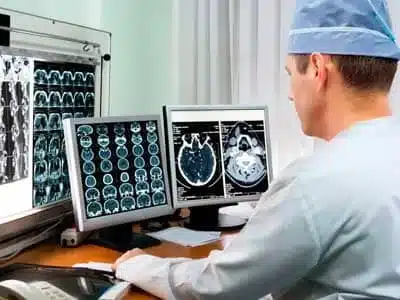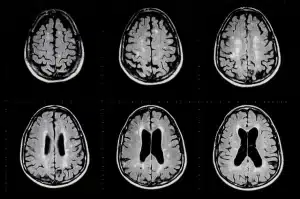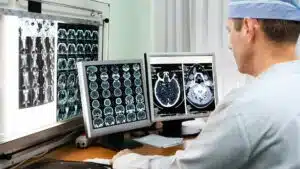- About Us
-
-

Our Mission
Learn More
-
-
-
- Our Research
-
-
Our Research

Our Research Strategy
Learn More
-
-
- Understanding Epilepsy
-
-
Educational Resources
- Epilepsy Explained Videos
- Webinars
- Treatment Talks
- Medication Access
- Epilepsy Research News
-
-
-
- Get Involved
- Support Us
-
-

Why Give?
Learn More
-
Other Ways to Support
- Start a Fundraiser
- Corporate Partnerships
- Team CURE Epilepsy
- Run/Walk Series
- Shop
- Subscribe
-
-
- For Researchers
-
-

Discoveries
Learn More
-
Other Resources
- Epilepsy Research News
- Research Resources
- Events for Researchers
-
-
-
- Donate

Epilepsy Basics
Learn about epilepsy and seizures – what they are, what causes them, and important things that people with epilepsy should know for their daily lives.

What is epilepsy?
Epilepsy is a neurological disorder characterized by recurrent seizures. Learn what epilepsy is, what seizures are, and why we need a cure.
Read More
What causes epilepsy?
1 in 26 Americans will develop epilepsy in their lifetime. Learn about the different causes of this complex neurological disorder.
Read More
Seizures 101
Epilepsy is a diverse group of neurological disorders which are characterized by recurrent seizures. Learn what causes seizures and how they’re classified.
Read More
Seizure Classification
Seizures are classified depending upon where they start in the brain, whether a person retains or loses consciousness, and other symptoms.
Read More
Phases of Seizures
There are four phases of a seizure. Learn the signs, symptoms, and progressions.
Read More
Seizure Action Plans
A seizure action plan (SAP) contains the essential information on an individual’s epilepsy to help keep them safe from injury during a seizure.
Read More
SUDEP
SUDEP (Sudden Unexpected Death in Epilepsy) refers to deaths in people with epilepsy that are not caused by injury, drowning, or other known causes.
Read More
Epilepsy Risks
People with epilepsy may experience other medical conditions and challenges related to epilepsy.
Read MoreDiagnosing Epilepsy
Understand who diagnoses epilepsy, which medical settings epilepsy can be diagnosed in, the diagnostic tools, and much more.

How is epilepsy diagnosed?
Learn about the first step in diagnosing epilepsy, from the types of doctors involved and the different roles they play to the medical settings in which epilepsy can be diagnosed.
Read More
Epilepsy Centers
Epilepsy Centers are specialized medical centers with a team of experts to help diagnose and treat epilepsy. You can search a database of epilepsy centers in your area.
Search Now
Diagnostic Tools and Tests
Getting an accurate diagnosis will guide treatment options and provide insight into a patient’s long-term prognosis.
Read More
Epilepsy & Genetics
Epilepsy is said to have a genetic cause if seizures are the result of a known or presumed genetic defect or problem associated with epilepsy.
Read More
Syndromes & Rare Epilepsies
Learn about epilepsy syndromes and rare epilepsies and discover where to get more information and support.
Read More
Adult vs Pediatric Diagnosis
Adult and pediatric patients may have different experiences in the diagnostic process. Learn the key differences.
Read MoreEpilepsy Treatments & Therapies
From medication and surgery to alternative therapies and medical devices, there are many ways to treat epilepsy and seizures. This section includes a comprehensive list of the FDA-approved drug therapies for epilepsy.

Epilepsy Medications
Drug therapies are available to treat people with epilepsy who have uncontrolled seizures. Learn about the FDA-approved medications use to treat epilepsy.
Read More
Dietary Therapies
For many years, the ketogenic diet has been used as an effective treatment for epilepsy in both adults and children.
Read More

Alternative Therapies
In addition to medication, devices, and surgery, there are alternative treatments for epilepsy, like CBD or music therapy.
Read More
Neurostimulation Devices
Neurostimulation devices may help reduce seizure frequency in people with drug-resistant (refractory) epilepsy.
Read More
Clinical Trials
Some epilepsy patients may qualify for clinical trials for emerging drugs. Visit this section to learn what clinical trials are, get answers to questions you may have, and find a clinical trial near you.
Read MoreEducational Resources
Additional resources to help patients, caregivers and loved ones understand and deal with epilepsy.

Epilepsy Explained Videos
Each month a featured epilepsy expert will answer questions about a specific area of epilepsy.
Watch Now
Webinars
Learn about the latest advancements in epilepsy treatment, seizure management strategies, and how to provide support to people living with epilepsy.
Watch Now
Treatment Talks
Learn more about specific epilepsy syndromes or seizure types, including cutting-edge therapies, treatment options, and holistic approaches for those living with epilepsy.
Watch Now
Medication Access
Understand the prescription medicine supply chain and how it impacts your access to medications.
Read More



